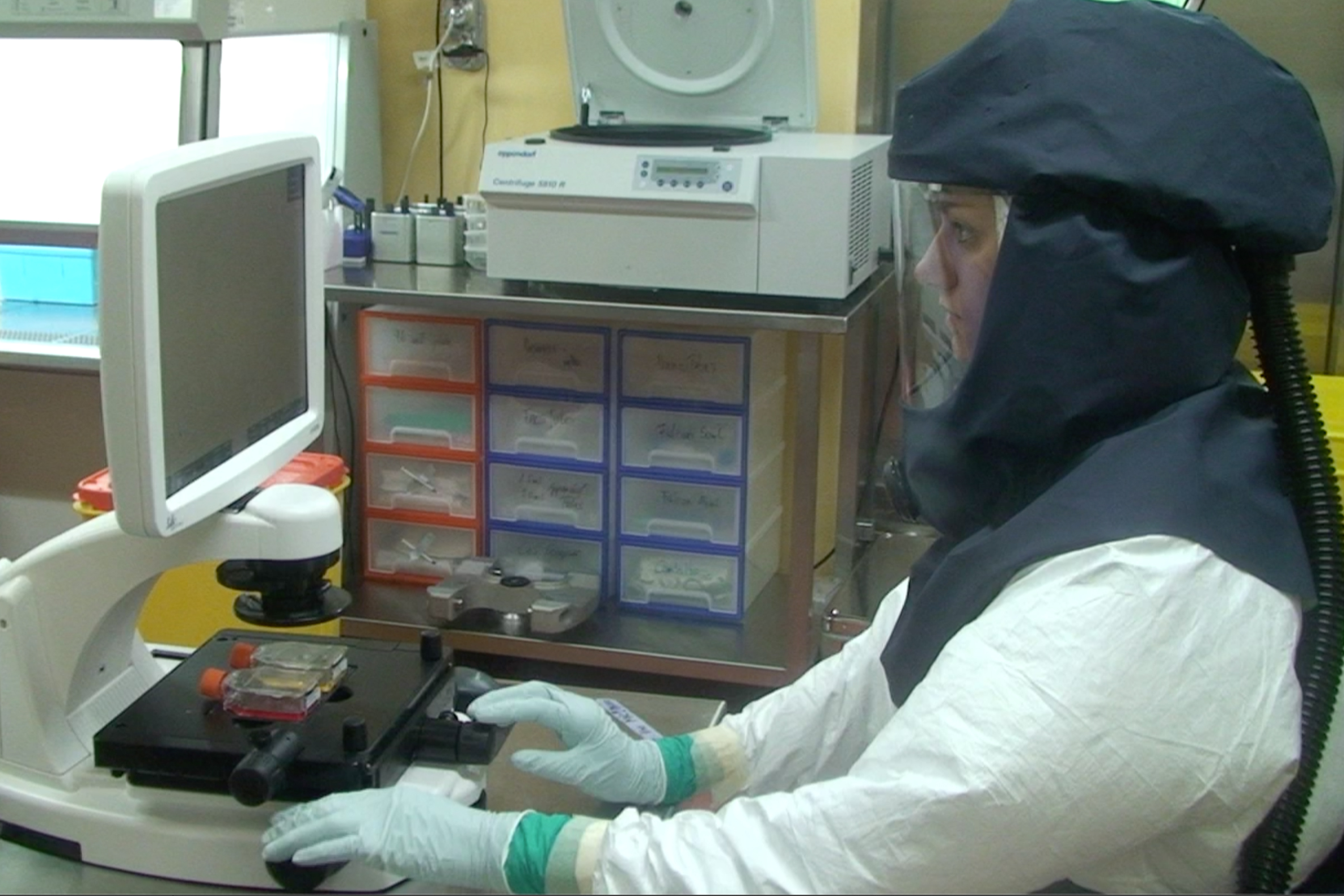Newly founded: A multidisciplinary center for research into infectious diseases and immunity
The University of Bern is establishing a multidisciplinary center to study the origin and course of infectious diseases and their impact on health, society and economics. The new research center is to receive some 30 million Swiss Francs financial support from the Vinetum Foundation over a period of 10 years.
Despite widespread warnings from the WHO in 2019 about the risks and the prediction of a “disease X”, the COVID-19 pandemic caught the world completely off guard. This event has demonstrated the sensitivity to epidemics and pandemics from interdependency of societies, as infectious pathogens have the capability of posing an existential threat to the world’s population, nations, economy and science in a globalized era. “The current crisis provides an impressive demonstration of the extent to which science is required to work in an interdisciplinary manner to analyze the problems that arise and to develop socially-relevant approaches for resolving them,” explains Christian Leumann, Rector of the University of Bern. “That is why, with generous financial support from the Vinetum Foundation, the University of Bern is establishing a much needed research center to foster interdisciplinary research into future epidemics and pandemics to better fightand protect against them.”
In-depth expertise locally at hand
“The University of Bern has strong key competencies in areas most relevant in the current context of the COVID-19 pandemic,” explains Daniel Candinas, Vice-Rector for Research at the University of Bern. Outstanding and internationally-acknowledged research central to understand and overcome the pandemic is already being carried out in the areas of medicine, veterinary medicine, economics, political science, psychology and the humanities, for example. This expertise is now to be brought together at a multidisciplinary competence center for infectious diseases, immunity and their consequences (Multidisciplinary Center for Infectious Diseases and Immunity, MCIDI).
“The MCIDI will explore pandemics from A to Z – from how they arise and how they are dealt with in the field of health care, through to the economic, political and ethical consequences,” explains Candinas. The newly-established center will benefit from the existing medical and veterinary network in Bern which is available for teaching and research (university institutes, clinics, laboratories and others), and from its proximity to the decision-making, political institutions.
Considerable support from the Vinetum Foundation
The Vinetum Foundation is a long-standing supporter of the University of Bern, and already backs research in the field of bee health. Franziska Borer Winzenried, President of the Vinetum Foundation and Honorary Doctor at the University of Bern: “We have confidence in the capabilities of the University of Bern demonstrated through its excellent research track record. We want to make our own contribution into the research of infectious diseases, because infectious diseases are on the rise – and the next dangerous pathogen is inevitable. We therefore need to take action against it now.” In this respect, having a global outreach is important, emphasizes Borer Winzenried: “The question of how we can best protect people in countries that have inadequate health systems is also very important.”
The “One Health” approach
The new research center is to consist of seven topic clusters to address medical and veterinary factors as well as issues surrounding economics, legal aspects and follow-on consequences investigated by methods from the social sciences. The “One Health” approach of the MCIDI, which examines the interactions between human, animal and environmental health, makes the affiliation with the Vetsuisse Faculty a natural fit. David Spreng, Dean of the Vetsuisse Faculty: “In the past year, not only has excellent research into COVID-19 been carried out in the area of One Health, but also in veterinary infectiology, when we proved able to develop the world’s first synthetic clone of Sars-CoV-2, for example.” This clone, which was also of interest to the WHO, is now being used by research groups worldwide to find antiviral drugs and develop vaccines.
The MCIDI was founded on January 1, 2021, and is being led by virologist Volker Thiel, head of virology at the Institute of Virology and Immunology and professor in Virology at the Vetsuisse Faculty, in its initial phase of the first four years. “I am looking forward to leading this interdisciplinary network with outstanding researchers and experts. It is important to learn from the experience of the pandemic in order to be better prepared for the scientific, societal and economic challenges in the future", says Thiel.
The MCIDI has been organized as a virtual center, so the creation of initial infrastructure is not necessary. This format has already proven successful for other interdisciplinary research centers, such as the Oeschger Center for Climate Research of the University of Bern.
Multidisciplinary Center for Infectious Diseases and Immunity (MCIDI)Multidisciplinary Center for Infectious Diseases and Immunity (MCIDI) The MCIDI uses an interdisciplinary approach to research the causes, protection against and management of the devastating consequences of epidemics and pandemics, and creates a network capable to respond to future threats on the basis of models, core structures and innovative questions. The structure of the MCIDI as a virtual center minimizes administrative workload and costs, so funds flow directly into scientific projects. The MCIDI consists of seven topic clusters: Immunity, Patient-oriented Research, Epidemiology, Microbiology, “Neglected Diseases”, Ethics – Politics – Social Sciences and Economic Sciences. In these topic clusters, application-oriented research projects are currently underway. An independent scientific panel of international experts is to determine and fund the best projects through a competitive process, and freedom of teaching and research is guaranteed. The MCIDI is to receive 30 million Swiss Francs in financial support from the Vinetum Foundation over a ten-year period. The MCIDI was established on 1 January 2021, and an official opening event is anticipated to take place in the summer of 2021. |
2021/01/20


